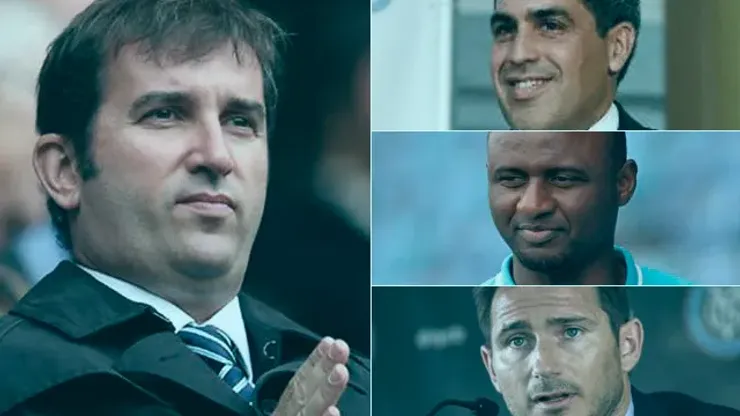The life of a soccer manager is precarious at the best of times, but taking on the senior role at a Major League Soccer expansion club is clearly a triumph of hope over the experience of others. The dismissal last week of Jason Kreis by New York City FC only adds to the already dismal record of inaugural managers of Major League Soccer clubs.
Of the 24 first year teams entering MLS, 46% of their managers have survived for only one season or less, and 75% have failed to make it beyond two seasons.
The rather terse announcement of Kreis’ departure was in stark contrast to the optimism surrounding his appointment in Dec. 2013. At that time there was heavy emphasis placed on Kreis’s MLS experience and how pivotal it was in making the appointment.
“His experience in MLS speaks for itself,” and “with the leadership of Jason and Claudio (Reyna, NYCFC’s Sporting Director) we are providing New York City FC with both top-level knowledge of soccer in the US and world class soccer know-how from Europe. This is the ideal platform for NYCFC to start,” opined the club’s Chief Executive Officer, Ferran Soriano. Nearly two years later and after a first season record of 10 wins, 7 draws, 17 losses, the initial appointment has Kreis looking more like a sacrificial lamb than a key element in building NYCFC.
SEE MORE: Vieira appointment could forge new MLS path for European coaches.
Monday’s announcement of Patrick Vieira’s appointment as the next NYCFC manager on a three-year contract is no ordinary importation of another foreign coach to MLS but rather a visible demonstration of Manchester City’s strategy of global diversification.
There again, to describe it as a Manchester City strategy may not be totally accurate. Manchester City is only one of four club entities located around the world owned by the City Football Group, an Abu Dhabi based holding company. Manchester City in England, NYCFC of MLS, Melbourne City in Australia and Yokohama F. Marinos that plays in Japan’s J-League are all owned by CFG.
The CFG approach is certainly innovative. Ownership of four clubs allows CFG to spread overhead over a broader base while operating in four different regions of the world. The structure also means CFG can offer global companies activation opportunities around the world. The Nissan deal consummated in July is a visible success of the CFG approach.
These and some others are the positives than come from the CFG plan. But there are drawbacks and discernible differences between theory and practice; or, as Mike Tyson, once pointed out, “Everyone has a plan until they get punched in the mouth.”
In pitching the advantages of a four-team “consortium,” the CFG brass have often talked of the opportunity to move players from club-to-club. However, their first real foray turned into a debacle, with CFG being shown to have made a misleading statement relating to the “ownership” of midfielder Frank Lampard.
SEE MORE: 10 things we learned from MLS’s conference semifinal finales.
In the summer of 2014, it was originally it was announced that Chelsea legend Frank Lampard had signed for expansion club NYCFC. It caused great excitement and by all accounts it sold a lot of season tickets. But there was an added twist. Lampard was almost immediately “loaned” by NYCFC to Manchester City, and the move was sold to the fans and media as a way to keep Lampard fit. However, it turned out that Lampard had never actually signed for NYCFC but rather he was registered to CFG.
Rather than joining NYCFC for the start of the 2015 season, Lampard stayed with Manchester City and only joined the MLS club mid-season. It is fair to say that Lampard’s overall performance once he arrived was underwhelming.
The appointment of Vieira shows CFG’s “plug-and-play” strategy also extends to technical staff, and there-in lies the rub. How do you convince NYCFC fans that the appointment of Vieira is in the best interests of their club rather than the Manchester City mothership?
Manchester City was Vieira’s last port of call as a player when he retired in 2011. Since then he has held various roles at the club, including the one he has just left, that of manager of Manchester City’s Elite Development Squad.
SEE MORE: David Moyes is tailor-made for MLS.
Announcing Vieira’s appointment, Claudio Reyna resorted to the old chestnuts of “exemplary drive, passion, dedication, and natural-leader.” Missing from Reyna’s latest managerial endorsement was the fact that Vieira has no experience coaching a top-flight side. More importantly, perhaps, Vieira may have “experienced different leagues and playing styles,” but he has no experience or concept of the unique challenges that MLS presents. Quite simply, there is nothing that substantiates Vieira’s appointment other than his place on the CFG payroll and his need of front-line experience.
It seems that rather than learning from the Lampard fiasco, CFG has set a course to double down. The appointment of Vieira has nothing to do with what is good for NYCFC; rather, an inexperienced coach has been reassigned in the hope he will develop while not causing too much damage in the process.
200+ Channels With Sports & News
- Starting price: $33/mo. for fubo Latino Package
- Watch Premier League, Women’s World Cup, Euro 2024 & Gold Cup
The New Home of MLS
- Price: $14.99/mo. for MLS Season Pass
- Watch every MLS game including playoffs & Leagues Cup
Many Sports & ESPN Originals
- Price: $10.99/mo. (or get ESPN+, Hulu & Disney+ for $14.99/mo.)
- Features Bundesliga, LaLiga, Championship, & FA Cup
2,000+ soccer games per year
- Price: $5.99/mo
- Features Champions League, Serie A, Europa League & Brasileirāo
175 Premier League Games & PL TV
- Starting price: $5.99/mo. for Peacock Premium
- Watch 175 exclusive EPL games per season







